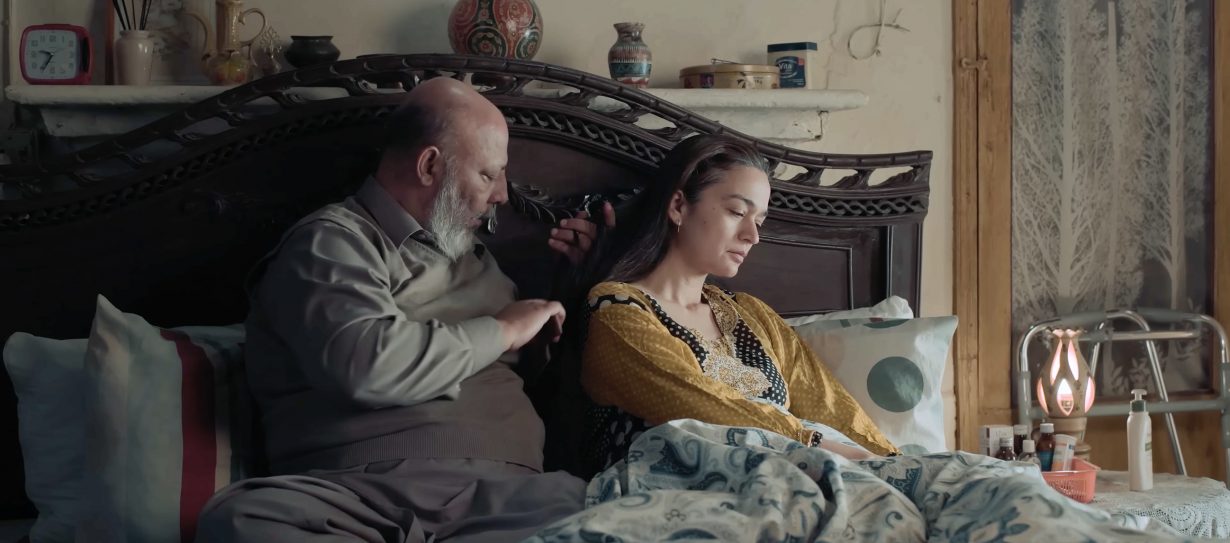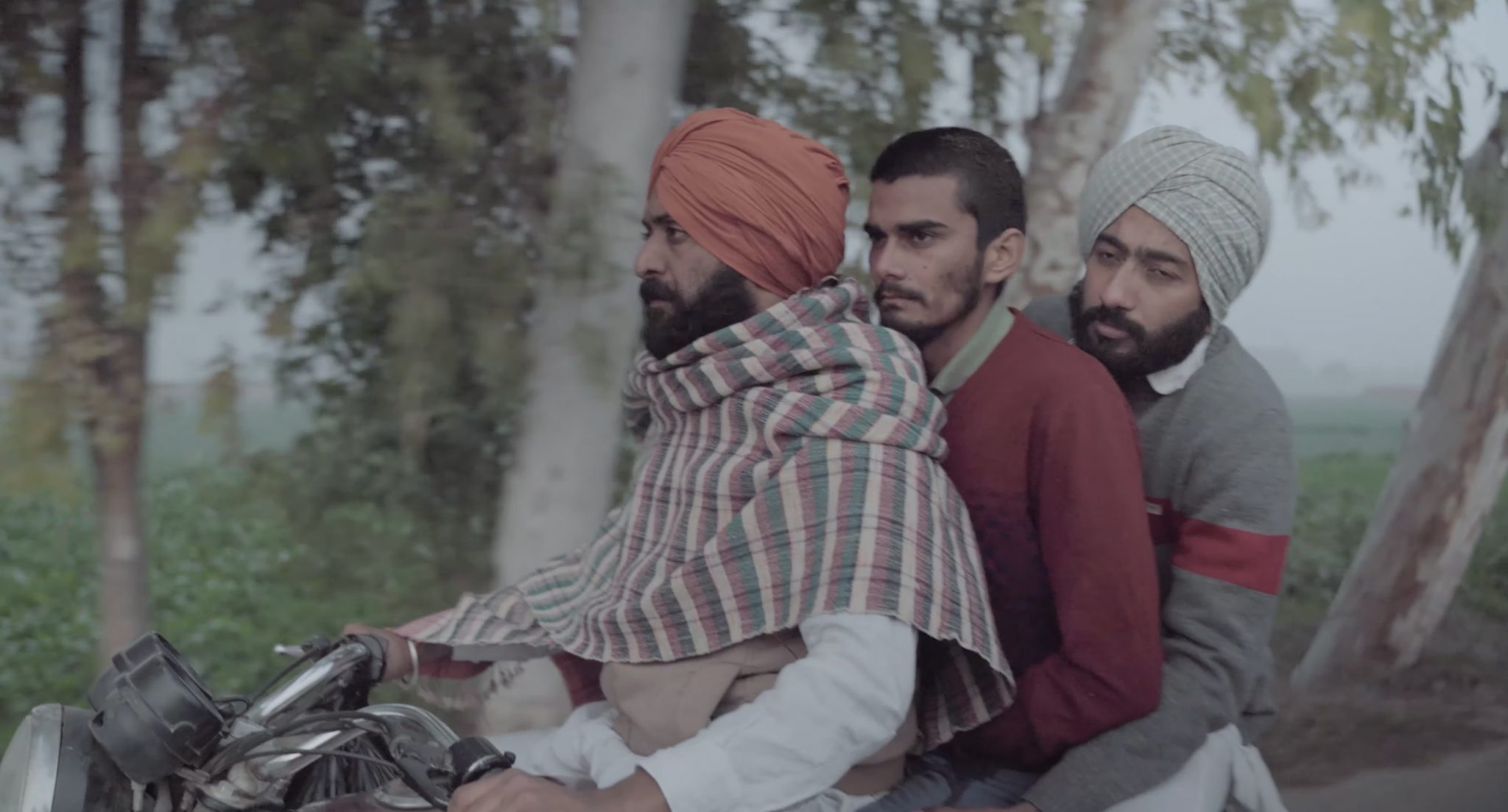Two films spotlight the toxic nature of South Asian definitions of masculinity, but also reveal the ways in which they are poisoning its lands
In the opening scene of Anmol Sidhu’s 2022 film Jaggi (currently streaming on Mubi), we see the eponymous young man, played by Ramnish Chaudhary, try to get hard. He fails; erectile dysfunction, we later find out, is the bane of his life. Distressed, he writes a few lines in his notebook and tucks it, along with a pistol, into his waistband. ‘MACHO’, a brand name, is printed on the broad elastic of his underpants. It seems both to encapsulate Jaggi’s desperate need to be the man society wants him to be and, in retrospect, to forebode the almost banal violence he will perpetrate at the end of the film.
Before that, we travel back in time to Jaggi’s throwaway remark to a friend about how he does not get aroused (and hence does not masturbate like the rest of his horny schoolmates). This unleashes its own chain of violence: Jaggi is branded a homosexual; bullied by his peers; and repeatedly sodomised by two older men. Unable to combat his abusers, he drops out of school and tends to farmland owned by his dysfunctional family: a drunken policeman father and a mother intent on pursuing a relationship with his uncle. Nevertheless, the rapes continue until a marriage is arranged to a vivacious girl. But just as a happy ending seems to come into sight, Jaggi is pushed over the edge.
The film is set in rural Panjab, its quaintness juxtaposed with the state’s many problems: land that has been overfarmed since the 1960s; farmer suicides; a people and their (Sikh) faith ravaged by a regional separatist movement. Drug abuse is a longstanding issue, as are border tensions resulting from the arbitrary division of the state during the 1947 partition of India and Pakistan. Some of these are acknowledged by Sidhu, but the director’s main critique relates to the expectation that boys and men constantly, relentlessly perform mardangi, or alpha-masculinity. Certainly not restricted to Panjab or even India, patriarchy’s notion of a ‘real’ (heterosexual) man does not allow for any kind of sensitivity or tenderness in interpersonal relationships. Indeed, these expectations, as depicted in traditional songs, films and pop culture, exclude individuals like Jaggi, who is slightly built, gentle with the family cattle, something of a diary writer, un-boisterous – qualities that are deemed effeminate.
In his extensively researched book Panjab: Journeys Through Fault Lines (2019), writer and journalist Amandeep Sandhu quotes a doctor practising in the state who claims that ‘at least 20 per cent of Panjab’s males suffer from some [sexual] problem or the other’. The doctor largely attributes these dysfunctions to a crisis of confidence and a lack of sex education, as well as to the cultural ‘focus on masculinity measured in fertility and being soldiers and farmers’. He goes on to cite drugs and testosterone injections taken by those in pursuit of a bulked-up physique, and chemicals used in the production of food crops (the large consumption of milk products, a staple in the region, is understood to be a factor in decreased libido, according to the research Sandhu presents). The suggestion in the film that Jaggi’s mother is feeding him and his father sleeping tablets mixed in food every day so that she can spend uninterrupted nights with her paramour might be another reason for his sexual dysfunction.

Panjabi culture (and South Asian culture at large) is obsessed with the male child. A son carries on the family lineage and supports parents in old age. A daughter, meanwhile, is a burden, ‘someone else’s wealth’ (to translate a traditional Hindi phrase). While reiterating gender stereotypes, this social conditioning also results in repugnant responses to any deviations from the norm; homosexuality, for example, remains taboo. It is why Jaggi’s alleged queerness makes him a ‘tempo’: a disturbing word that the doctor in Sandhu’s book, speaking about homosexual relationships in Panjab’s villages, says is a ‘gay bottom for public use’.
Faced with queerness or with men like Jaggi who do not constantly fall in line with the demands of hypermasculinity, those who never stop being suffocating caricatures of maleness seem to resort to immediate violence. This is what happens to Jaggi, as well as to Rahat Khawaja (played by Arif Hassan) in Sarmad Khoosat’s Zindagi Tamasha (Circus of Life, 2019), which plays out in the cultural landscape of the other Panjab, the part of the region that is now in Pakistan. A devout Muslim and upstanding member of society, Khawaja entertains a group of friends at a wedding by dancing coquettishly to an old song. What was meant to be a private performance goes viral when a surreptitiously made video is shared. The backlash is immediate. Khawaja is ostracised, taunted and shunned by all but his wife, who is privately amused but feels obliged to not take sides when their daughter also condemns him. Unsurprisingly, the assumption is that he must be gay if he can dance like a woman. At a queer gathering to which he is invited, he falls back on the machismo by which he is culture-bound and betrays them, tipping off the police about those present. As it happens, Khawaja, the caregiver for his sick wife, is the antithesis of hypermasculinity, as demonstrated by the way he combs her hair, cooks for her and feeds her, among other domestic acts.
Like Jaggi, Zindagi Tamasha is about the victim-survivor and perpetrator, and the layers of toxicity that such a dynamic breeds in society. There is enough in the film about blasphemy laws (in Pakistan, this crime is punishable by death) and the hypocrisy of the clergy that does not condemn bacha bazi (a practice in which men buy and keep young boys for entertainment and sex; a custom also said to have been popular in Afghanistan and since banned by the Taliban) yet imposes narrow interpretations of religious law on society. Both films are as much a critique of airtight definitions of gender politics as they are about the cascading effects that this rigidity has on land and culture. India and Pakistan might be political rivals with little interaction allowed between their citizens, but the language and culture, of the Panjab region in particular, is common to the two nations. So too the problems of hypermasculinity and its far-reaching consequences. As such, both Jaggi and Zindagi Tamasha could well have been made in the neighbouring country; their relatability would have remained the same.
Deepa Bhasthi is a writer based in Kodagu
